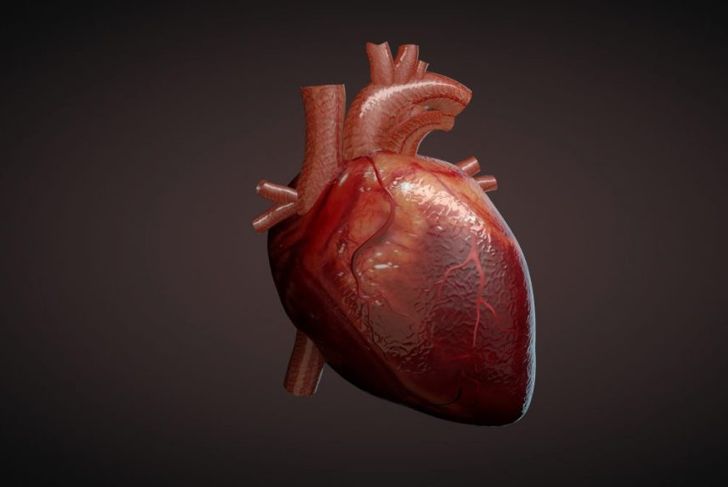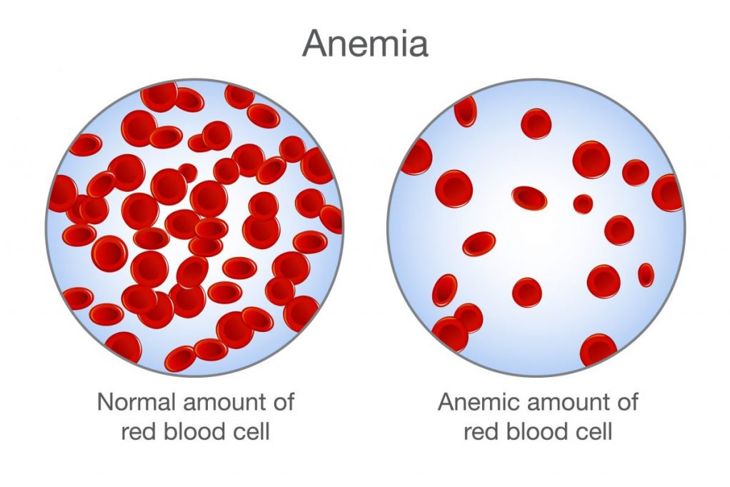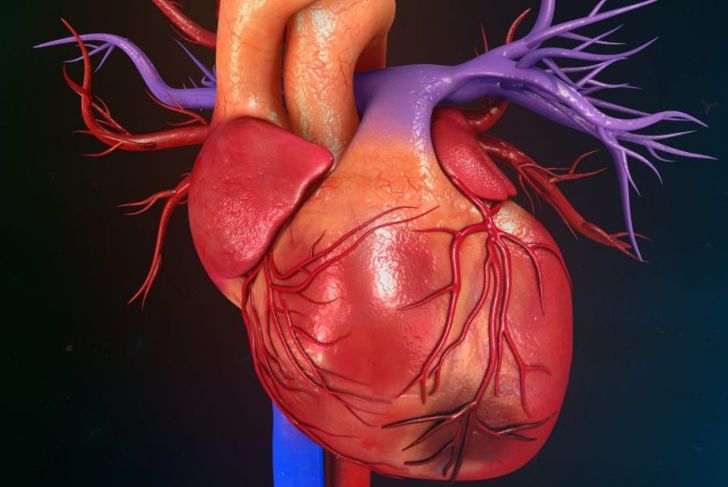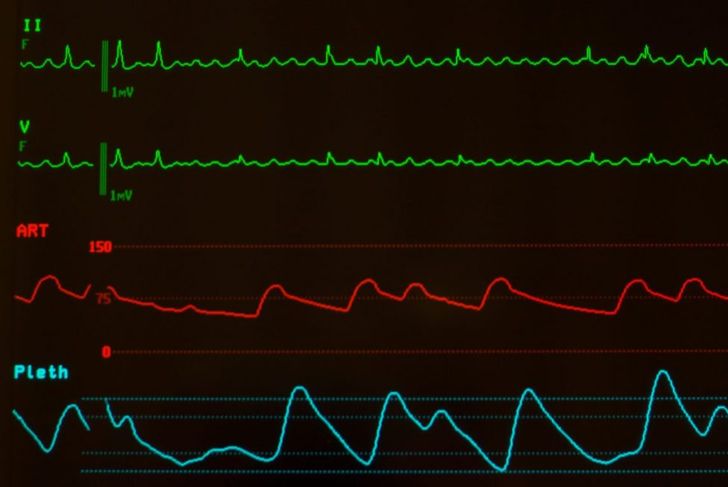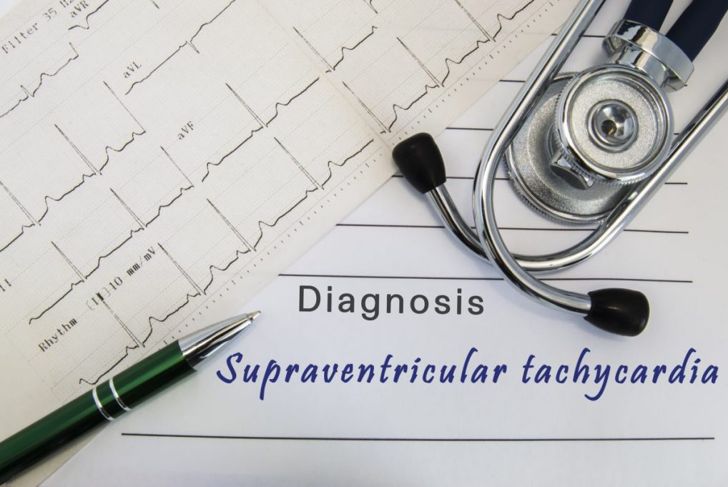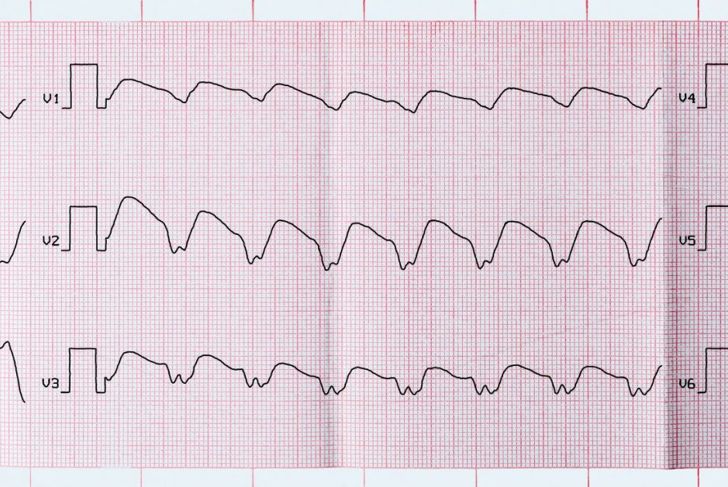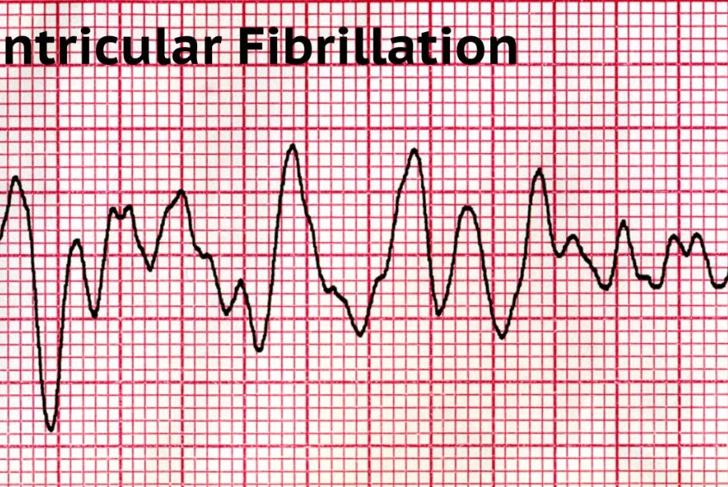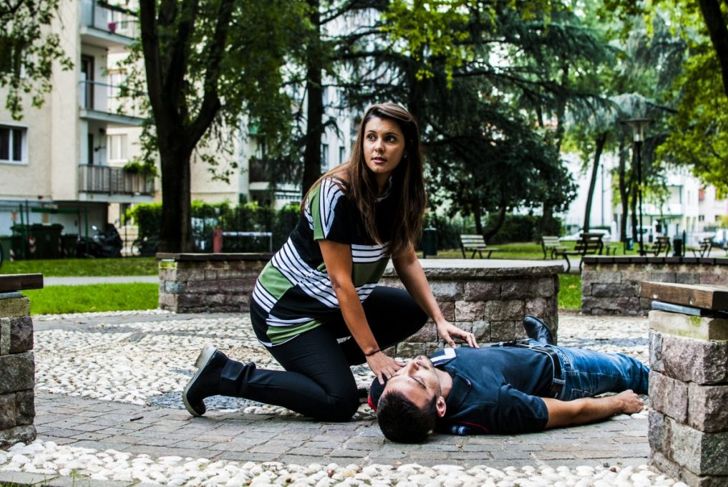Tachycardia is a common type of arrhythmia (abnormal heartbeat) that occurs when the heart beats too fast while at rest. An adult’s heart usually beats between 60 and 100 times per minute at rest. Tachycardia is a heart rate over 100 beats per minute. In infants and toddlers, tachycardia presents as a resting heart rate of at least 150 beats per minute. There are several types of tachycardia. In some cases, tachycardia doesn’t cause any complications. In other cases, however, untreated tachycardia can cause serious complications, such as stroke, heart failure, or death.
Heart Function
The heart is made up of four chambers: two on top, the atria, and two lower chambers or ventricles. The sinus node in the right atrium controls the heart, acting as a natural pacemaker. The sinus node produces electrical impulses that begin each heartbeat. An electrical impulse travels from the sinus node across the atria, which results in the atrial muscles contracting and pumping blood into the ventricles. The electrical impulse arrives at a cluster of cells known as the atrioventricular (AV) node. The AV node slows down the electrical impulse before sending it on to the ventricles, to allow the ventricles to fill with blood. When an electrical impulse reaches the ventricular muscles, the muscles contract, pumping blood to the lungs and the rest of the body. When something disturbs this electrical system, tachycardia can occur.
Tachycardia Risk Factors
Anything that damages heart tissue or puts a strain on the heart increases one’s risk of tachycardia. Common medical conditions associated with tachycardia include overactive thyroid (hyperthyroidism) or underactive thyroid (hypothyroidism), underlying heart disease, diabetes, high or low blood pressure, sleep apnea, and anemia. Fatigue, heavy use of caffeine or alcohol, psychological stress, anxiety, smoking, and use of recreational drugs also put people at higher risk for tachycardia. Some medications can cause an abnormally fast heart beat, as well. Also, a family history of tachycardia puts you at higher risk of developing the condition yourself.
Atrial Fibrillation
Atrial fibrillation is the most common type of tachycardia, caused by chaotic and irregular electrical impulses in the atria. This results in rapid, weak, and uncoordinated atrial contractions. Most individuals with atrial fibrillation have structural abnormalities in the heart related to an underlying condition such as high blood pressure or heart disease. Hyperthyroidism, a heart valve disorder, and heavy alcohol use can also contribute to this type of tachycardia. Atrial fibrillation may cause a blood clot to develop inside the heart, raising the risk for stroke.
Atrial Flutter
Atrial flutter occurs when the atria beat rapidly at a regular rate, causing weak atrial contractions. Irregular circuitry inside the atria causes this issue. Individuals who have atrial flutter will often have atrial fibrillation at other times. Sometimes atrial flutter resolves itself; other times, treatment is needed to manage the condition.
Supraventricular Tachycardia
Supraventricular tachycardia is caused by electrical impulses that originate somewhere above the ventricles. This type of tachycardia is usually present at birth and is caused by faulty circuitry within the heart that creates overlapping electrical signals. Symptoms of supraventricular tachycardia can be challenging to identify in infants and young children and may include pale skin, sweating, poor feeding, and a heart rate of at least 200 beats per minute. Supraventricular tachycardia may come on suddenly and last anywhere from a few minutes to a few days. Frequent or ongoing episodes may require treatment.
Ventricular Tachycardia
Ventricular tachycardia occurs as a result of abnormal electrical impulses that come from the ventricles. This type of tachycardia prevents the ventricles from filling with blood and contracting enough to send a sufficient amount of blood to the rest of the body. If a ventricular tachycardia episode lasts only a few seconds, it may not cause any damage to the body. However, episodes lasting more than a few seconds can be life-threatening and require emergency treatment.
Sinus Tachycardia
Many people experience minor cases of sinus tachycardia. Exercise, anxiety, being startled, stimulants such as nicotine and caffeine, fever, medication, and recreational drugs such as cocaine can all cause sinus tachycardia. More serious cases may classify as inappropriate sinus tachycardia (IST). IST may be related to hyperthyroidism, low blood pressure, or anemia.
Ventricular Fibrillation
Ventricular fibrillation occurs when rapid and chaotic electrical impulses cause the ventricles to quiver rather than pump blood to the body. The event can be fatal if the heart isn’t shocked back into a normal rhythm within a few minutes. This type of tachycardia usually happens during or after a heart attack and is typically associated with underlying heart disease or serious physical trauma, such as being struck by lightning.
Tachycardia Symptoms
Common symptoms of tachycardia include heart palpitations, irregular, uncomfortable, or racing heartbeat, shortness of breath, fainting, dizziness, chest pain, rapid pulse, and loss of consciousness. Tachycardia can lead to serious complications including heart failure, unstable low blood pressure, stroke, blood clots, and sudden death. Sometimes, people experience no symptoms of tachycardia.
When to See A Doctor
You should see a doctor if you experience any tachycardia symptoms. Several medical conditions can cause the condition, and it’s important to find the root of the problem to treat it properly. If you faint, have breathing difficulties, or experience chest pain for more than a few minutes, seek emergency medical care.

 Home
Home Health
Health Diet & Nutrition
Diet & Nutrition Living Well
Living Well More
More